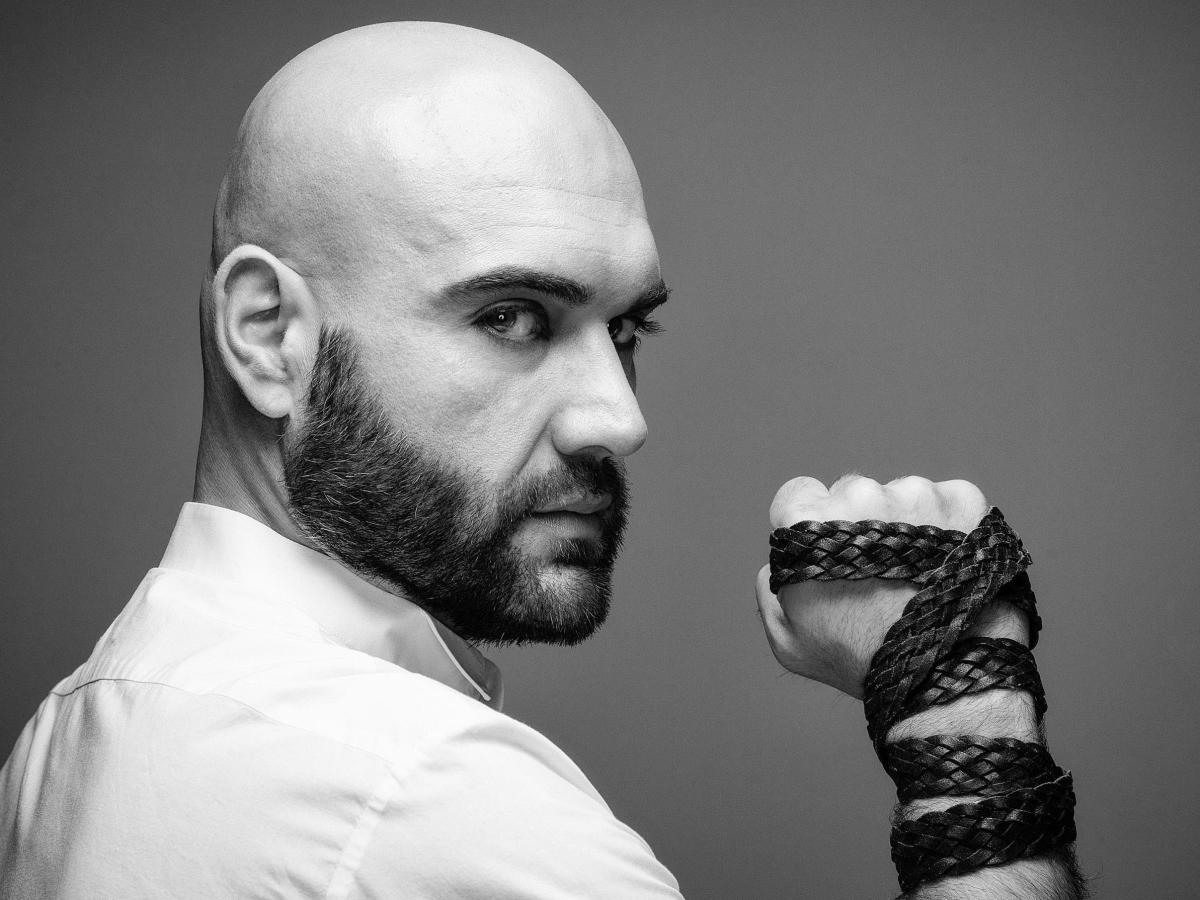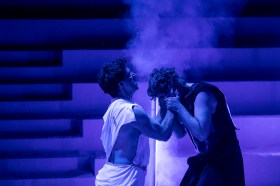Xavier Sabata. Image by Beetroot Design.
When Mother warned you to stay away from musicians, it wasn’t obvious she meant the countertenor. But Spanish virtuoso, Xavier Sabata, exposes the shady personae inhabiting the Baroque canon.
In his Australian debut at Hobart Baroque on 29 March, Sabata presents Handel: Bad Guys, the arias of Handel’s reprobates. The album receives a virtually unprecedented five stars from Guardian critic Tim Ashley who states: ‘This ranks among the most intelligent and striking recital discs of recent years.’
Bringing a contemporary twist to historic repertoire, Handel: Bad Guys exemplifies how rising young stars are reframing the Baroque.
‘What Xavier chose to do – and it’s very unusual – is to say that there’s equally beautiful music which is written for some of the nastier characters in Handel’s operas: the plotters, the villains, the emperors who chop people’s heads off,’ states Festival Director, Leo Schofield.
And Sabata defends his alter-egos: ‘For me, all those “bad guys” are not “bad”. For me, they are human beings with (maybe) a lack of self confidence or emotional intelligence. This drives them to act in a way that must be judged as bad.’
Sabata’s early acting training informs his desire to penetrate the psychological states of his dark cast.
‘No one is that “good” or that “bad”, so I try to find moments of light, love, tenderness and doubt, in the same way I’d work on a “hero”. They are not linear roles (or linear psychologies), but they are much more complex,’ Sabata emphasises.
The success of Handel: Bad Guys hangs partly on the Sabata’s rigorous creative process.
‘There’s a famous quote by Monteverdi which says “prima la parola e dopo la musica” (first the words, then the music) and I work totally in this direction,’ Sabata reveals. ‘I first analyse the text – the libretto – and from there I build the approach to sound and to my singing. I also build the character physically and this gives me the path to the expression.’
Sabata accredits the Lieder duo, Mitsuko Shirai and Hartmut Höll, as a formative influence on his sound.
‘I know that it sounds strange that a countertenor has a degree in “Lied”,’ Sabata reflects on the German pastoral form. ‘But this school of singing gave me the approach to the music, through the energy of the words and the teaching of colouring words with your voice.’
The countertenor style that Sabata achieves has rapidly gained the attention of record companies. Along with Julia Lezhneva, Xavier Sabata appears on the Decca recording of Handel’s Alessandro and Sabata’s interpretation of Handel’s Tamerlano will appear in March on the Naïve label.
The description of countertenor embraces two distinct voice types: the countertenor who approximates a mezzo soprano and the higher-pitched sopranist whose voice is closer to the coloratura. Leo Schofield identifies Sabata in the former group. ‘They’re warmer,’ he states. ‘It’s a difference between a velvety Claret and a crisp Riesling. It has a seductive quality that I think people will really go for.’
At Hobart Baroque, Sabata will be accompanied by the Orchestra of the Antipodes and conductor Dr Erin Helyard. For Sabata, the unknown dimension of live collaboration has unlimited potential.
‘The ideal is to work in a way where all the artistic energies can result in a unique performance,’ he says. ‘I find a unique moment is when the conductor, the orchestra and I are all channels for the music. Flexibility and a rigour are the key words in this relationship. This openness can create such a genuine and amazing unique moment.’
Xavier Sabata with Orchestra of the AntipodesFederation Hall Stage
Saturday 29 March
For more information visit Hobart Baroque






